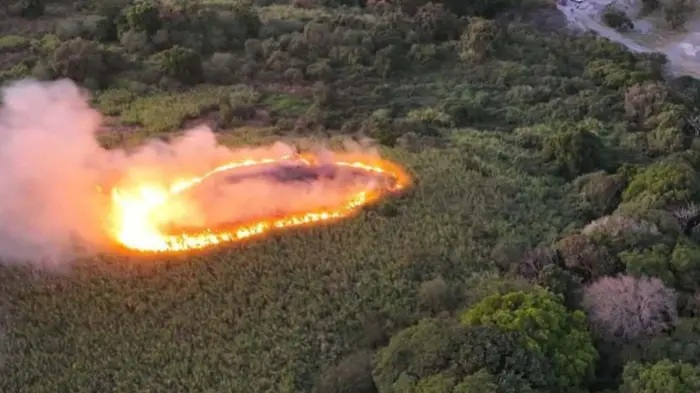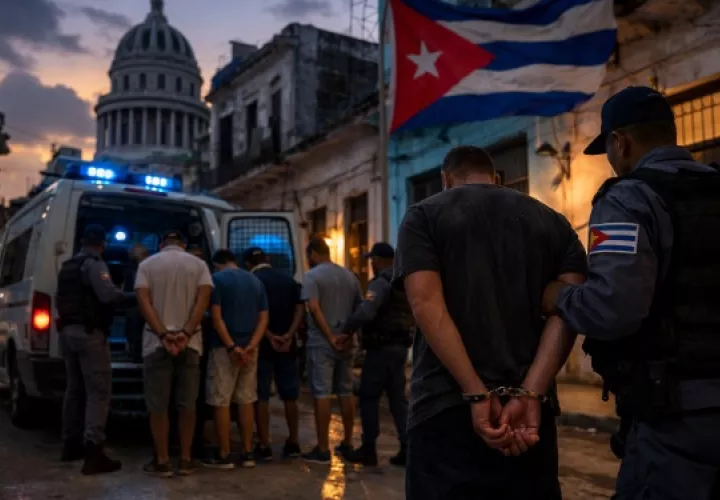Money laundering guessing game

WHO KNEW what and when, has become a guessing game in the Waked family money laundering scandal with the news of early principal players having their convictions overturned.
The Panama Second Court revoked an 80 month sentence imposed on the deliverer and receiver of over $200,000 in 2008 after a botched prosecution by a man who was later named to the Supreme Court.
The sentence was imposed in the first instance on Ariadna Hernandez-Lozada, Maria Fernanda Gonzalez and Ali Shaaban Abd Fares-.
All are mentioned in a letter sent to Panama’s First Drug Prosecutor , May 11 by the US Drug Enforcement Administration ( DEA ) pointing out that the case led the DEA to initiate the investigation of the Waked International Group, in which Panamanian authorities cooperated.
The letter, said the arrest of Ariadna Hernandez-Lozada was in August 2006 at Tocumen airport when she had $217, 295 attached to her body.
She and Shaaban allegedly belonged to a network dedicated to money laundering.
The decision of the Second Court, followed an appeal filed by: Zaribel Alleyne, Eliecer Chacón and Guillermina McDonald lawyers of the accused.
McDonald, currently, represents Abdul Waked who has repeatedly claimed he had no knowledge of a DEA investigation and McDonald has downplayed the DEA and US Treasury evidence.
In the appeal the judgment of the Thirteenth Criminal, Court which issued the 80 months sentence was reversed. It was found that the $217, 295 found on Hernandez-Lozada came from an inheritance left by her grandfather, although initially she confessed that she had been contacted by Gonzalez to carry the money and would be paid $1,500
Regarding Maria Fernanda Gonzalez, the judges said that while she was not found with cash, she agreed to bring $ 220 600 to deliver to a person, identified as Jose Hernandez, for him to buy clothes in the Colon Free Zone .
According to the judges, the prosecutor in the case “took no steps to verify the identity of Jose Hernandez and only with proof of ‘ion scan’ took for granted the crime of money laundering”.
Regarding Fares- Shaaban, the decision indicates that he was not found with large sums of money or bank statements that could be considered “suspicious” and, on the contrary, like any citizen owns a vehicle obtained through a loan. The evidence of “ion scan” practiced on the money found in his residence and vehicle were not positive for traces of cocaine.
The appeal judges argued that the Drug Prosecutor’s Office did not endorse the statements of the police officers who investigated, and got confessions linking a third party.
Also, there was no evidence that the money managed by Hernandez-Lozada and González was handed over to Fares-Shaaban, as part of the operation of a criminal organization dedicated to money laundering.
The ruling also states that the existence of a prior offense to reveal the alleged illicit origin of the seized money was not proved.
The prosecution said that receipts for large sums of money were found at the home of Perez-Shaaban and that the money held by Ariadna Hernandez-Lozada was to be delivered to a third person, who even showed up to pick it up. It suggested that Maria Fernanda Gonzalez entered the country before, “with a large sum of money,” which was also delivered to third parties

The Drug Prosecutor Jose at the time was Jose Abel Almengor who was later investigated by then Attorney General Ana Matilde Gomez for allegedly letting a witness under house arrest travel to Miami. Almengor resigned and was later appointed to the Supreme Court by then president Ricardo Martinelli. He resigned in disgrace after demands from the law societies and a potential trial by the National Assembly when he was exposed as part of a cabal attempting to railroad Ana Matilde Gomez.





